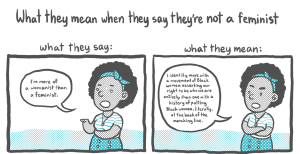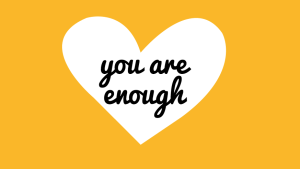
A business team collaborating at a table.
I graduated college 5 years ago and, like any regular college graduate, I had anxieties about finding work, sustaining it, and ensuring that it was lucrative.
These fears are further compounded with my identity as an unapologetic Black woman, especially in workplaces that lack diversity.
Four years ago, after a few unpaid internships, I decided to take a year off from pursuing writing jobs to teach English in Thailand. I was ecstatic. This decision felt like a step towards self-awareness and personal growth.
After arriving, my excitement was curbed when I found out I was the first Black American woman to teach at my school, which was located in a small rural town. I struggled in other ways as well, receiving stares in the market and commonly disbelieved that I was American.
I later discovered that the school administration was hesitant to hire Black people because of the stereotypes they heard of us being “violent.” This shattered me and reminded me that anti-Black racism and prejudice occurs globally.
I also learned that when I was accepted for the position, my boss told my soon-to-be coworker and close friend that she hired a Black woman but that my complexion wasn’t “that intimidating.”
“She’s dark, but not that dark,” the administrator said as if darker complexion means I would have been somehow worse.
It didn’t get any better in more “liberal” working spaces. The last time I became hyper-aware of what my presence means in the workspaces I occupy, was at my last full-time position at a nonprofit media publication.
Although the company’s mission touts progressive values, driven by equality, they still have much to learn about hiring with a more inclusive eye. None of my superiors were people of color, and few LGBTQI people were in the office.
But, after the glowing honeymoon moon phase passed, I started to experience a new wave of emotions, insecurities, and doubts, and it wasn’t until recently that I acknowledged that my feelings were rooted in trauma from racial microaggressions.
No matter where you are in the world, being a Black woman in a workplace lacking diversity isn’t easy.
Natural hair and cultural names are few of the problems we face while job searching. With the normality of social media, it is even easier to judge a candidate before meeting them, simply by finding pictures of them or scouring their Twitter.
What’s worse is how we feel once we do make it into the office: alone, alienated, misunderstood, and loverlooked.
Anti-blackness is more than the obvious threats to our lives and bodies — it is the uncomfortable feeling of not belonging and being oppressed. But if we aren’t taken seriously socially and politically, how can we be fully recognized professionally?
These emotions, impacted by real microaggressions, can brew into bigger mental and emotional states we feel in the office. Here are 4 significant times that my presence in a mostly-white workplace felt stifling, uncomfortable and isolating.
1. I experienced severe imposter syndrome
I held two positions at my previous full-time job. The first was an internship, and like most internships, this one was temporary, demanding and had a dead end.
My plan was to use this internship as an opening to other career opportunities in the company, a mentality many of the other interns shared.
Surely enough, I landed another role at the company: not another internship, but it was contracted position. This time, there was the pretense* that the role could evolve into an official job.
I was ecstatic about landing the position that I worked so hard for, but shortly after starting my new role, imposter syndrome — the doubtful feeling that tells us we don’t belong in a professional setting regardless of our talents and accomplishments — began creeping around the edges of my mind.
As a Black woman, the standard definition of imposter syndrome doesn’t feel inclusive or thoughtful enough. It doesn’t take into account that having an intersectional identity can heighten a person’s imposter syndrome: being both a woman, and Black, queer, gender nonconforming, or more, makes it even more challenging to work in white environments.
According to a study by the University of Texas at Austin, Black college students reported facing higher levels of imposter syndrome than their Asian and Latino peers and believed it directly impacted their mental health and anxiety levels.
Women and people of color already fight to get into spaces we aren’t usually welcome or seen in. We have to work twice as hard to get what we want, and harder to maintain what we get.
It makes sense that we experience imposter syndrome differently, as we already battle normalized and institutional racism and sexism on the regular, on top of the internalized prejudices our co-workers and employers may express.
The imposter syndrome I experienced was a daily series of questions and worries about how people interacted with me, the work I was given or not given, and the way I felt as the only Black woman on my team.
Why am I really here? Is my work good enough? Do I sound smart? Am I presenting myself in the best way possible? These were some of the questions that flooded my mind daily.
2. I lost my confidence
Imposter syndrome impacted my confidence.
I second-guessed the work I produced, felt self-conscious around coworkers and analyzed every little thing my manager said to me. I dreaded meetings and felt my mind go blank when randomly asked for my ideas or opinions. If I made an error, I was anxious about it for days.
Black women don’t have room for making mistakes, as are fighting against at least two types of prejudices against our identity: being Black and woman. The natural human act of making a mistake is interpreted as incompetence when we do it.
The stereotypes against Black women and the subtle microaggressions I faced began to influence my self-image. It didn’t help that the possibility of my contracted position turning into a job lingered in my mind — this was my chance to prove myself.
I couldn’t mess up, and yet it felt like I was always messing up.
There are some methods women of color can use to build their confidence in these situations and environments, including speaking up early and often in a meeting, overemphasizing our skills and owning our accomplishments, rather than being modest or downplaying them.
Although helpful and reassuring, I noticed that these tips all stem from the idea that we have to rise above or over-emphasize our abilities in order to get noticed.
Although working harder to prove ourselves can be empowering, it also places the responsibility for change in our hands only, as if we are the ones who created these inequalities in the first place.
There isn’t enough conversation on how white, heteronormative and male-dominated offices should make their work environments more welcoming for us. We are still expected to wear extra armor to equip ourselves to the microaggressions we will face. As if it is inevitable.
3. I lost my motivation to perform well at work
One way that I persisted against microaggressions at my job at the publication, was by showing my superiors that I was interested in various projects, excited to learn new things and willing to help in multiple areas.
I pitched to different teams, suggested ideas and expressed my curiosity in wanting to learn how the different teams in our department contributed to the bigger machine we were a part of.
My curiosity and availability were met with silence, polite rejection and placation. It reminded me of an episode of Insecure where Lawrence, one of the main protagonists, pitched his app idea to his superiors, only to be met with polite rejections and compliments on his sneakers. They avoided his efforts to share ideas instead of telling him what they are looking for and how he could do better next time.
I experienced something similar. Although I asked for feedback on pitched ideas that didn’t work, I never truly received helpful guidance that could accelerate my growth. It felt like I was stuck on one level and couldn’t rise above it, even as I persisted.
I began to disengage, and it started to feel like I was completing basic work. I stopped feeling challenged and seeing any professional growth within myself.
The one time I was finally asked to do more complex work was to complete a project on race and gender. Of course, I was ecstatic to finally be presented an opportunity to show another skillset.
But soon after completing that project, I realized I was mostly asked to give input on things like racial wording or subjects. Admittedly, I am passionate about intersectional feminism and social justice, but I am capable of doing more than speaking on behalf of my people.
I believe that it’s important for people of color to give their input on racial matters, but it becomes problematic when that is the only time we are asked for our perspectives. We are more than our race.
When we are primarily asked to speak on race, especially in the workplace, and not other intellectual matters, it becomes obvious that it’s the only value that employers see in us— as if we are truly only there to fulfill a diversity initiative.
It’s especially harmful if marginalized people aren’t in leadership or decision making roles, and aren’t recognized for their abilities beyond their identities.
Diversity that intends to uplift the ideas and voices of marginalized people and diversity for the sake of filling a quota are very different things. One calls for change in the way an office functions — the other is merely interior decorating.
4. I became paranoid, constantly worrying about my future at my job
Although I knew my position at this company was contracted and would eventually come to an end, I was still hopeful for the prospect of it becoming a job.
I became paranoid about making a good impression and being perfect. I began comparing myself to other interns and contractors who were able to break the ceiling between temporary position and official job. But still, I noticed none were people of color.
I noticed that the interns that excelled were groomed and mentored for a promotion early on in their internships. I never felt that I was groomed or mentored to move up in the company.
I began harboring the notion that there was something that I hadn’t done or proven early enough to change my employers’ minds. It felt as though I was watching other white employees succeed, while I was left to wonder what was wrong with me.
***
Black women already aren’t paid enough at work, are in fewer leadership roles, and aren’t promoted or valued as easily as non-Black employees.
It isn’t fair that we are expected to work twice as hard and be immaculate only for our potentials and accomplishments to go unrewarded.
Though this may not always be the case for Black women, I’ve felt and seen it more than I like.
I can think of two outstanding Black professionals who I admire that were shut down from their positions despite their tenures and power. To me, their firings were more dramatic and insensitive than normal — especially since they both dedicated so much time and heart to their positions. But still, it seemed so easy for their employers to let them go — as if they were disposable.
And yet, when they spoke out, they were punished even more — punished for having a voice.
[do_widget id=’text-101′]
Alisha Acquaye is an Everyday Feminism Reporting Fellow. Alisha is a Brooklyn-born writer, tea enthusiast, and lipstick babe who loves creating all-natural potions for her hair and body. Her writing focuses on race, gender, body, beauty, social issues and pop culture. You can find her work in Elle, The Establishment, Teen Vogue, and OkayAfrica. She’s low-key obsessed with Trader Joe’s, Chopped, and creating Spotify playlists.
Search our 3000+ articles!
Read our articles about:
Our online racial justice training
Used by hundreds of universities, non-profits, and businesses.
Click to learn more
Most Read Articles
- « Previous
- 1
- …
- 30
- 31
- 32




















